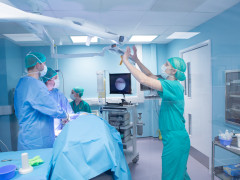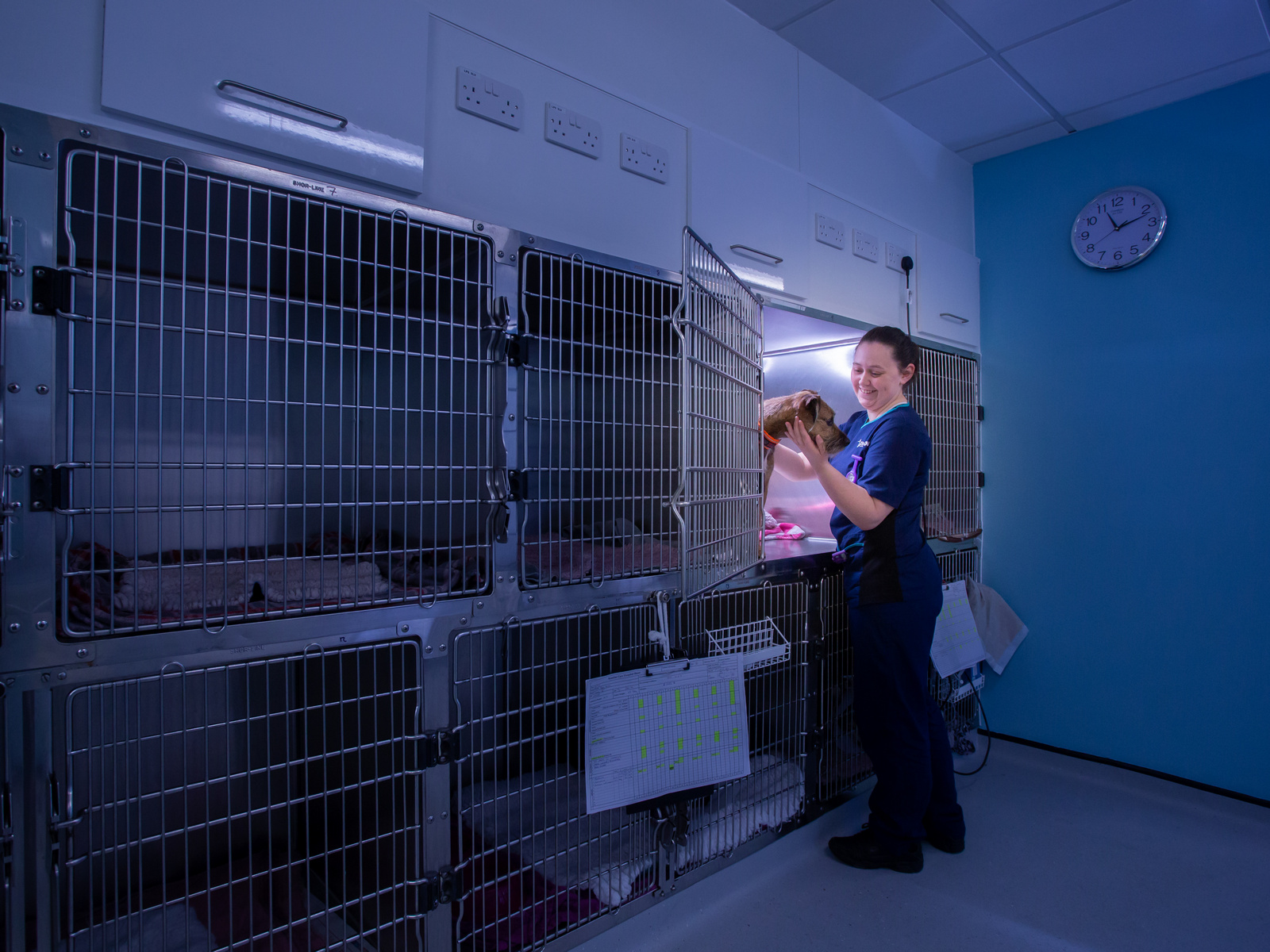Clinicians reveal what persuaded them to embark on a career in emergency
When vets or vet nurses consider a career in emergency and critical care, there’s often a hesitation surrounding working hours, on-call commitments and the fear of burnout.
But the reality is, in many cases, clinicians are pleasantly surprised by the work-life balance out-of-hours work offers.
Anne Longmire, of our talent team, asked some of our frontline staff why others should consider embarking on a career at Vets Now.

Interested in joining our team?
If working out of hours appeals to you, check out our current job opportunities.
Find out more1. Unpredictable caseload
Traditional on-call doesn’t exist at Vets Now.
Our clinical staff are based in ‘host practices’ and they care for their inpatients overnight or during the day at weekends and bank holidays. Most emergency cases are directed from our centralised contact centre – the first port of call for worried pet owners – to the clinic. This allows our teams to prioritise during the busiest periods.
Working sole charge, being exposed to the largest ECC caseload in Europe and not knowing what will come through the door next can be daunting for some. However, such a diverse caseload provides real scope for development and career progression.
District clinical lead Sara Jackson, who has worked for Vets Now for more than five years, explained: “The clinical work itself is absolutely phenomenal. The challenges that we get, the day-to-day cases that are different, and of course, we have real-time medicine as well. We are able to give results within 30 minutes so clients aren’t left hanging, which is wonderful.”
Roving vet, Sarah Hird, added: “At Vets Now we are really lucky because we tend to see a really good mix of medical and surgical cases overnight, so we’ll see things like foreign bodies, DKA and HGE cases, blocked cats, trauma, dystocia, pyometras and GDVs.
“So we tend to see a different population of animals compared to day practice, and our cases tend to be really interesting and exciting. And of course the caseload is unpredictable, it’s a bit like A & E, so sometimes you’ll have a flurry of cases, and then a bit of a lull, but we don’t stick to an appointment system, we just see cases as urgently as they need to be seen.”

Hand-picked related content
2. You’re never alone at Vets Now
Even though our clinical teams are small in size, you’ll never be alone at Vets Now.
On any given shift, a vet and vet nurse might work alongside an animal care assistant and receptionist. Both roles are vital in ensuring the smooth running of the clinic and we couldn’t function without them. On-shift, you can also call upon the support of other clinicians working around the country and a district vet or manager. Our teams are close-knit and they value, respect and trust each other.
Elise Bardsley, veterinary surgeon at Vets Now in Kirkcaldy, Fife, said: “Your clinical colleagues appreciate what it’s like to work at the coalface of ECC and fully understand the pressures of working out of hours. There’s a no blame culture at Vets Now and sharing experiences, good or bad, can only add value to the service we provide.”
Sara Jackson added: “In all truthfulness, if you’re passionate about Vets Now, you can talk to anyone within it. You don’t get that in a lot of organisations and that’s very much promoted.”
3. Continuous professional development
At Vets Now, we pride ourselves on the development of our people.
Our learning and development team are on-hand in our support office to assist with development.
As Elise explained: “All clinicians have access to an internal CPD pathway within their first year of employment and then they’re given a CPD budget to spend from year two onwards.
“In addition, Vets Now regularly holds free CPD days as well as CPD webinars. Clinicians are also encouraged to undertake certificates in ECC and financial support is provided as well as time off for study.
“There is also a 12-week distance learning course for vets called ‘The Emergency Patient’. It’s run twice a year by district vet and advanced practitioner in ECC, Jacqueline Seymour.”

4. An emergency career for all
Working full time isn’t possible or desirable for everyone.
We offer part-time and weekend-only roles that can be balanced with other commitments or hobbies. These can provide a great solution for those seeking a steady introduction to a career within emergency.
Elise added: “In some of our clinics, we double up with vets and vet nurses at the weekend to provide care and support at the time it’s needed most. This provides an opportunity to work alongside an experienced vet or vet nurse – ideal for sharing information and knowledge.
“For those looking to dip their toes into ECC, in some clinics, we offer roles that are not sole charge. In these circumstances, we can flex our induction process and add shadow shifts and extended mentoring to meet the needs and pace of the individual.”
For vets looking for a boost of confidence or to hone their ECC skills, we offer two unique induction programmes: Cutting Edge and AdvantEdge. Both programmes were designed by Amanda Boag, group referral director at Vets Now’s parent company IVC Evidensia, and are headed by Aoife Reid.
5. Working out of hours can help work-life balance
There’s often a presumption our vets and vet nurses work long hours in comparison to general practice, but that’s not the case.
In an average week, a full-time vet or vet nurse will typically work 40 hours with either a one in two or a two in three-weekend rotation (this involves a mix of nightshifts and shorter dayshifts) and a fair share of bank holidays.
Nightshifts can range from 13.5 to 15 hours and clinical staff will usually work no more than three shifts in a row – although this varies from clinic to clinic.
This is ideal for those who want a long break between shifts, perhaps to return home to visit friends and family.
Our health and wellbeing team are always on hand to help anyone worried about compassion fatigue or work-life balance.
Elise said: “Working long hours and managing demanding cases can place a greater strain on mental health and it’s vital vets and vet nurses recognise when their work-life balance has been impacted. There’s lots of information during the induction to help you prepare for working nights and, in time, each person finds what works best for them.”
At Vets Now, people are our greatest asset and we’re proud to offer full functions such as health, safety and wellbeing, people services and a supportive district team, as well as an employee assistance programme service. Find out more about our commitment to health and wellbeing here.
If you’re interested in a career at Vets Now contact our talent team at [email protected]
